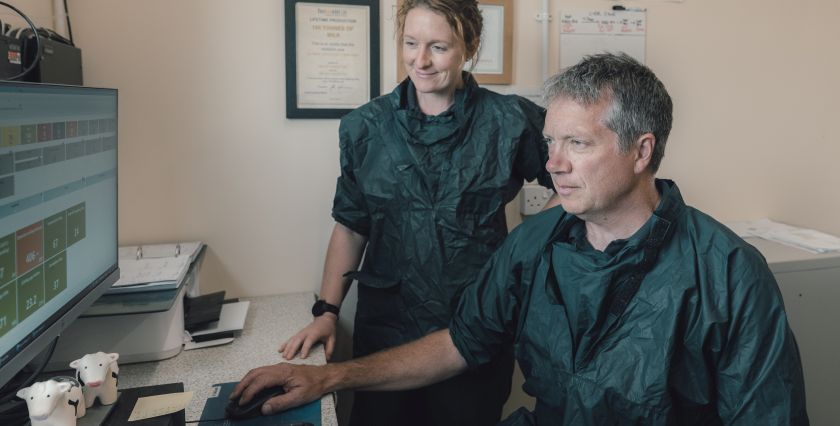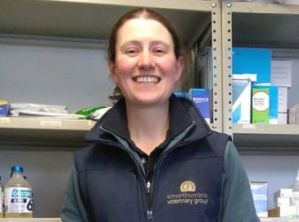-
-
- Advancement of the Professions Committee
- Standards Committee
- Audit and Risk Committee
- Education Committee
- Disciplinary Committee
- Charter Case Committee
- Preliminary Investigation Committee and Disciplinary Committee Liaison Committee
- Registration Committee
- Preliminary Investigation Committee
- Paper classification: some definitions
-
-
-
-
- About extra-mural studies (EMS)
- EMS requirements
- Information for vet students
- Information for EMS providers
- Information for vet schools
- Temporary EMS requirements
- Practice by students - regulations
- Health and safety on EMS placements
- EMS contacts and further guidance
- Extra-mural studies fit for the future
-
-
- Code of Professional Conduct for Veterinary Surgeons
- Code of Professional Conduct for Veterinary Nurses
- Contact the Advice Team
- XL Bully dog ban
- 'Under care' - guidance
- Advice on Schedule 3
- Controlled Drugs Guidance – A to Z
- Dealing with Difficult Situations webinar recordings
- FAQs – Common medicines pitfalls
- FAQs – Routine veterinary practice and clinical veterinary research
- FAQs – Advertising of practice names
- GDPR – RCVS information and Q&As
-
- Accrediting veterinary degrees
- Accrediting veterinary nursing qualifications
- Reasonable adjustments for student vets
- Health and disability in veterinary medicine study and practice
- The role of the veterinary schools and the RCVS
- Reasonable adjustments and the Equality Act 2010
- Reasonable adjustments and Day One Competences
- Examples of reasonable adjustments for vet students
- Annex
- Reasonable adjustments for student vets - summary
- Reasonable adjustments for student veterinary nurses
- Health and disability in veterinary nurse education and training
- Reasonable adjustments for students and the UK disability discrimination legislation
- Educational assessment of veterinary nurses
- Roles of key stakeholders in the application of reasonable adjustments
- Examples of reasonable adjustments for vet nurse students
- Embracing reasonable adjustments for student vet nurses - summary
- External review of the RCVS by ENQA
- Requirements for remote and online student assessments
Continuing professional development (CPD)
Continuing professional development (CPD) is a requirement for all veterinary surgeons and veterinary nurses on the RCVS Register. It keeps your skills sharp, your knowledge current and boosts your confidence, helping you grow as a professional while providing your patients with the best possible care.
This page will guide you through planning, recording, and reflecting on your CPD.

On this page:
- Who needs to complete CPD?
- CPD requirements
- The outcomes-focused CPD cycle
- How to access 1CPD
- Planning your CPD
- What counts as CPD
- Recording your CPD
- Reflecting on your CPD
- Pausing your CPD
- How we can help
Who needs to comply with CPD?
- All vets and registered veterinary nurses (RVNs) on the practising Register need to comply with the RCVS CPD requirement.
- For vets on the overseas Register, it is not mandatory to use the RCVS’s 1CPD platform, although it is recommended.
CPD requirements
To meet CPD requirements, follow the outcomes-based cycle: plan, do, record, reflect.
For vets:
- Record 35 hours of CPD per calendar year using 1CPD
- Reflect on your learning in 1CPD
For vet nurses:
- Record 15 hours of CPD per calendar year using 1CPD
- Reflect on your learning in 1CPD
Note: CPD hours cannot be carried over from one year to the next.
These annual targets apply:
- Whether you work full or part-time
- To RCVS-registered vets practising overseas
The outcomes-focused CPD cycle
Plan - Set objectives and identify areas for development.
Do - Participate in activities relevant to your role.
Record - Track your completed CPD using 1CPD.
Reflect - Review what you’ve learned and its impact on your professional development.
How to access 1CPD
You can access 1CPD in two ways:
1. Download the app:
Logging in
You can log in to 1CPD using the same username and password you use for My Account. If you've forgotten your details, you can look up your username or reset your password on the My Account sign in page.
Help with 1CPD
The Help section in 1CPD provides step-by-step guidance on planning, recording, and reflecting on your CPD
How to access Help:
- In the app: open the menu in the top-left corner and select Help.
- On the desktop: select Help in the main navigation menu.
How we use your 1CPD data
For information about how we store, secure and use your data, see the 1CPD privacy policy.
Planning your CPD
Planning your CPD helps you to:
- Identify areas for development and improvement
- Make the most of learning opportunities as they arise
- Choose cost-effective activities that are relevant to your role
We recommend reviewing your learning and development needs regularly, whether through formal workplace appraisals or informal one-to-one discussions.
Planning using the 1CPD app
The 1CPD app helps you set and manage your learning objectives. These are set from the Plan page.
- Select Plan in the navigation menu, then choose Add Objective.
- When you record an activity, you can link it to the objectives it supports.
- You can have up to ten active objectives at a time.
- Once an objective is achieved, mark it as complete so you can add more.
- You can also add future activities in the Record section. These will appear on your summary page as a reminder.
What counts as CPD
Anything relevant to your role counts as CPD. It doesn't have to be clinical, costly or involve a formal learning.
Opportunities for CPD can arise in your day-to-day work. If you learn something new that you didn't know yesterday, it counts as CPD.
Examples include:
- Formal activities: such as courses and seminars
- Workplace-based activities: such as reflecting on a challenging case or shadowing a colleague
- Self-directed activities: such as reading a book or listening to a podcast
There is no limit to the number of hours you can record for each activity. The important part is to record your CPD and reflect on what you’ve learned.
CPD on a budget: how to learn for less
 "Not only was I making my own CPD hours to log, but I also got a discount on the cost of the meeting. Extra CPD hours and saving money was a win-win in my eyes."
"Not only was I making my own CPD hours to log, but I also got a discount on the cost of the meeting. Extra CPD hours and saving money was a win-win in my eyes."
Vet nurse Lauren Valentine blogs about carrying out CPD on a budget.
Recording your CPD
You record your CPD using our digital recording platform, 1CPD, which lets you track your activities on the go.
You can access 1CPD either via the app or on desktop.
How to record an activity:
- Select Record on the main menu
- Enter activity details and the dates you completed it
Working overseas and CPD
- Vets: you don’t have to use 1CPD if you're an RCVS-registered vet practising overseas. You can use whatever platform is available locally.
- Vet nurses: you must meet UK CPD requirements, regardless of where you are practising.
Reflecting on your CPD
Reflection is essential - CPD only counts once you've reflected on it.
For each activity, consider:
- How it relates to your learning needs and objectives
- What you've learned
- How you'll apply it at work
- How it will impact your practise
You might finish an activity and realise it wasn't useful. That's fine - as long you reflect on why that was the case.
It's a common misconception that reflecting on CPD takes lots of time. But remember:
- You don't have to write an essay - a few notes are enough.
- You can upload a photo of written notes instead of typing them out.
- Reflections can be added any time - a day, a week, a month or even a year later - as long as the impact is still relevant.
If you're struggling to meet your CPD requirement
- This RCVS Academy course will show you how to use everyday opportunities for CPD.
- If a life event or sickness make CPD difficult, you may be able to pause your CPD.
 Integrating CPD into day-to-day practice
Integrating CPD into day-to-day practice
"I think many vets are easily attaining the minimum of 35 hours per year, they just don’t see it - or forget to record it!"
Vet Pam Brown blogs about how she fits learning into everyday practice.
How to log your reflections on 1CPD
1. Select Reflection in the main menu.
2. Select the activity you want to reflect on.
Choose between:
- Guided reflection (with prompts)
- Free reflection (notes, voice recording, documents or photos)
Pausing your CPD
You can pause your CPD for up to six months per calendar year in certain circumstances, including:
- Having a baby or going on parental leave
- Long-term sick leave
- Caring responsibilities
- Other significant personal or professional changes
Yearly targets when pausing
If you pause your CPD, your yearly requirement is reduced - you only need to complete a portion of it and you don’t need to make up the hours later.
For example, pausing for six months halves your CPD requirement:
- Vet requirement becomes 17.5 hours
- Vet nurse requirement becomes 7.5 hours
How to pause your CPD
Requests to pause can be made via the desktop version of 1CPD. Select Pause CPD and complete the form. Once you’ve completed it, you’ll be asked to complete a return-to-work plan.
Applications cannot be made retrospectively, but there's no limit on the number of times you can pause.
Letting us know about pausing
- Please give us as much notice as possible.
- When completing the request form, select a reason from the dropdown menu. No additional details are required, as our system is built on trust. If any questions do arise about your request, we may get in touch for clarification.
Pausing longer than six months
You can only pause your CPD for six months per calendar year. If you need more time, it might be best to:
- Join the non-practising Register (vets)
- Remove yourself from the Register temporarily (vet nurses)
By doing either of the above, you won’t need to complete CPD during your time away. Your CPD requirement will resume from the date you re-register.
Paying to re-register (vet nurses only)
Vet nurses re-registering after 6-18 months off the Register do not need to pay a fee.
How we can help
We want to ensure you have everything you need for your CPD.
If you have a question that we haven’t answered on this page, email us at [email protected] and we’ll be happy to help.
CPD courses and webinars
Our RCVS Academy course is designed to help you better understand CPD requirements.
We've also held several webinars on a range of topics related to CPD.
One-to-one support
Need extra support using 1CPD? Want to talk through any questions or concerns you might have? Our education team offers one-to-one support sessions. To arrange a session, please email [email protected].